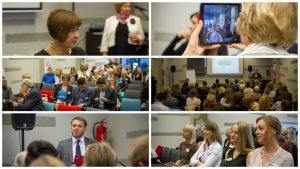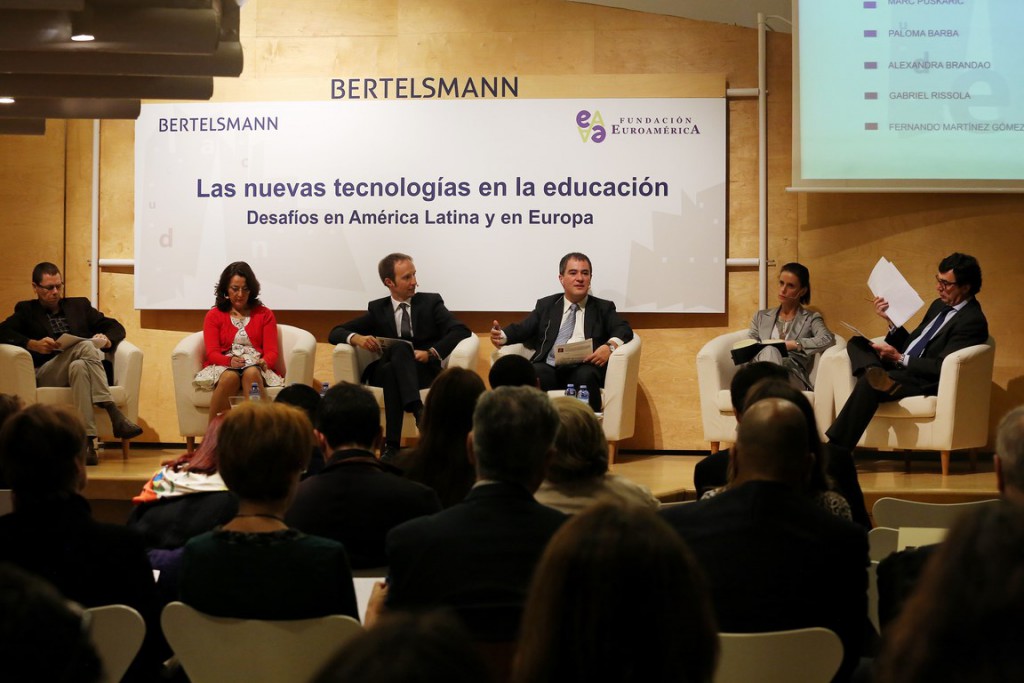22 Sep Rebuilding communities and fostering lifelong learning through intergenerational dialogue
22 Sep, 2015
Guests and project partners from at least 10 countries met in Vilnius to attend an international conference on intergenerational learning on 11th of September. The event was organised in the context of European Trans e-Scouts project and was hosted by one of the project partners Association Langas i ateiti.
Association Langas i ateiti Director Ms. Loreta Križinauskienė opened the conference by emphasizing the importance of the project for local communities: the dialogue between the two generations not only facilitates the lifelong learning and exchange of skills, but also brings people together.
“Every strategy is a bloodless scheme without people who make it happen,” with this note Ms. Gražina Kaklauskienė, Deputy Director of Erasmus+ programme in Lithuania began the conference panel referring to the success of the project.
She stressed the fact that even though young people know how to obtain information, but this information does not always equal knowledge. Therefore, similar projects are needed to boost young people’s learning motivation and skills.
Mr. Marius Vaščega, working in the European Commission Representation in Lithuania, introduced the situation of youth employment highlighting that at present the average of the EU youth unemployment rate is still around 21%.
“Employment and digital skills will be even more interconnected,” Mr. Marius Vaščega said.
In addition, he listed initiatives run by the Commission to address the skills gap such as Grand Coalition for Digital Jobs, Digital Single Market strategy, Communication on Rethinking Education and on Opening up Education. Mr. Valdas Maskvytis from the Ministry of Social Security and Labour in Lithuania added some statistics to the topic: 1 in 5 of all unemployed in Lithuania are young people while 11% fall into the NEETs category.
Telecentre Europe’s Managing Director Mr. Gabriel Rissola talked about the need for intergenerational dialogue in the knowledge society through projects like Trans e-Scouts. The predecessor e-Scouts project was first run in 2011-2012 and was recognized as a best practice by the European Commission. This acknowledgement is a very important indicator for civil society organisations working in the field.
Mr. Jacques Van Egten, CESES President, was invited to introduce his organisation which is The Confederation of European Senior Expert Services offering professional, voluntary, short-term assistance and advice with over 24,000 volunteers. Mr. Van Egten shared more examples of intergenerational projects in Belgium.
Some of Trans e-Scouts project participants – e-Facilitators, senior mentors and young volunteers – from four partner countries were also present and used the opportunity to share their experience during two workshop sessions of the conference.
Trans e-Scouts project’s leading organisation is D.O.T. (Spain); project partners are: Fundacion Esplai (Spain), LIKTA (Latvia), Langas I ateiti (Lithuania) and Telecentar (Croatia). The project partners are also members of Telecentre Europe network.

Photo credits: Danijel Borna Fiket







